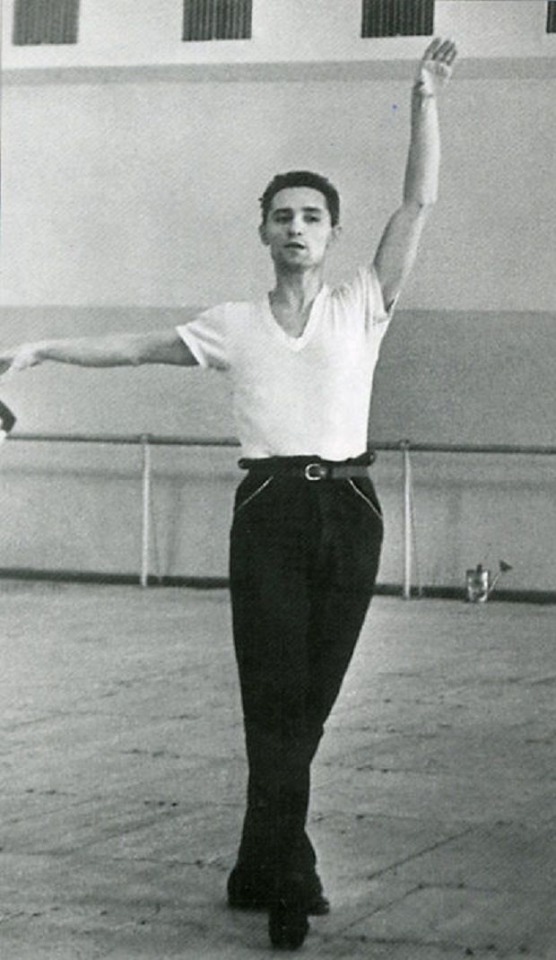#yuri grigorovich
Text
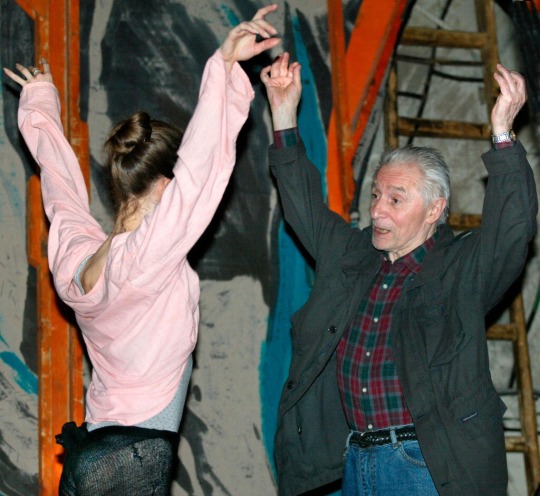
“Yuri Grigorovich leads a final rehearsal of 'A Legend of Love' at the Bolshoi theater in Moscow.”
Photographed by Alexander Nemenov.
23 April 2002.
32 notes
·
View notes
Note
Hi Ale, I know you're very busy right now, so no need to respond. I just wanted to reflect a little on the results of the Moscow IBC 2022. I watched the whole thing live from start to finish, as I was off work sick for 2 weeks - so it was a great way of passing time. It was clear to me early on that Koshkareva would get gold, she stood out in her cohort in terms of artistry and strength. I am beyond delighted for Maria Iliushkina whose individual uniqueness as a dancer was also clear to see, even on the livestream. Her Raymonda was stunning, as was her Odile. Nikita was more mercurial, and I feel his partnering let her down in some places (in others they were simply beautiful together), particularly that late lift in the Legend of Love pas de deux. Long story short: even though Iliushkina was not perfect in all respects, her unique quality shone through. I am really happy that the jury saw that, too, and have awarded her gold accordingly. For me she is a modest dancer with a natural reserve which - and this is the interesting thing - she seems to be able to convert into something ethereal and otherworldly, and yet she is still able to channel the demonic too (her Odile is becoming one of my favourites). Her all-round dancerly intuition is utterly uncanny.
Even with Nikita perhaps not performing to what I think can be his level, I had the impression that this was to some extent down to the competition environment. On the Mariinsky stage, he strikes me as more self-assured (kudos to Iliushkina for getting past that and still managing to channel her uniqueness, what a true artist). But he is (I think) so promising and has more artistry to come. There were moments of real beauty in what he did, too. I was very struck by their partnership in the Hans van Manen piece - it sent out imo a strong impression of what they can become as a pair over time (and perhaps already are in some ballets). Their lines were so beautiful - but what I found fascinating was how they danced eeriness in that piece. They could potentially be brilliant in Giselle.
I am skipping over lots of the other brilliant contestants now because I'm aware that this is a v long message (thank you for bearing with!) - but as much as I am thrilled for both Iliushkina / Korneev, I am most disappointed for Anastasia Smirnova. For me beyond everyone in all categories across both junior and seniors she was the stand-out star, very different to Iliushkina, but with a comparable distinctive artistic uniqueness that is already articulating itself very clearly in such a young dancer. And then: great technique and what a jump. How on earth could the jury have awarded her only a silver (and a shared one at that) on the basis of her performances. She was so consistent across her solos, too (at least that is what my admittedly untrained eye tells me). I am no expert, but I was so confident she would get gold (and a part of me sincerely hoped the jury might even think of her for the Grand Prix). Am I totally on the wrong track here? (I also do not mean to diminish the achievements and talents of everyone else who I am not mentioning here - I was very impressed by the other soloists in the senior women's category, but Smirnova seemed to me to have a considerable edge).
Am I right to be wondering about the composition of the jury? What must it be like for e.g. Fateev to be sitting across from a stage that this major talent, no longer at the Mariinsky, is streaking across? Does this not constitute a conflict of interest? I guess not, because most of the jury would be 'out' if that was the case - it's a small world. But the silver did give me pause for thought, and I wondered what your view was.
Posting this separately because it's so long and detailed!
My thoughts in response:
I agree, Koshkaryeva and Iliushkina unquestionably deserved gold
Iliushkina/Korneyev looked much stronger on the pieces they've been doing for a while (eg SL, Raymonda) compared to the new ones
Nikita had some moments where he was definitely the weaker one in the pair. That Legend of Love is certainly what dropped him down in the prizes but the Grand Pas Classique was also not super clean
I agree that he looked more nervous and less self-assured than I'd been accustomed to seeing from him. Even when he was debuting in a lead role along with someone like Skorik, he had more confidence. I too wondered how much of this had to do with the competitive environment. Perhaps he felt the pressure more here than for normal performance.
I too think that Smirnova was robbed, she really was head and shoulders above everyone. Each time she stepped on stage I was wowed. . But perhaps there were simply too many people against her politically for her to prevail...
I know she was never in consideration for the Grand Prix. There was talk that it was going to be given to Iliushkina but that was impossible after their poor LOL.
About the conflicts of interest. At some competitions, most notably YAGP and PDL, teachers/directors can not judge their own students, their scores will be thrown out. (Bo Spassoff famously will give his students ridiculously impossible scores as a joke, he awarded Issac Hernandez 500/100 points at the YAGP finals)
However, I think everyone judged everyone here, simply because the background of the judges is too narrow, there's so much overlap. For example, Tsiskaridze, Zakharova, Fayteev, Eifman, Elvira Mnatsakanyan, Vadim Pisarev, Valentin Yelizariev, and even Yuri Grigorovich have too much history and connections to judge any competitor from VBA or MT totally 'objectively.' If I were to list the BT/ MRAX people... there's almost as many, and tons of overlap between the two. So where do you draw the line? Because that's essentially half the jury!! You can't have them all sitting out because then that totally imbalances the voices of those who don't have all the connections (ex those from non-soviet countries). Considering the egos and tempers of the most powerful people on the panel.....they're going to want their opinions taken into consideration for everything.
#moscow ballet#moscow ibc#moscow ballet competition#ballet#russian ballet#ballet ask#ballerina#nikolai tsiskaridze#yuri grigorovich#maria koshkaryova#maria iliushkina#anastasia smirnova
6 notes
·
View notes
Text
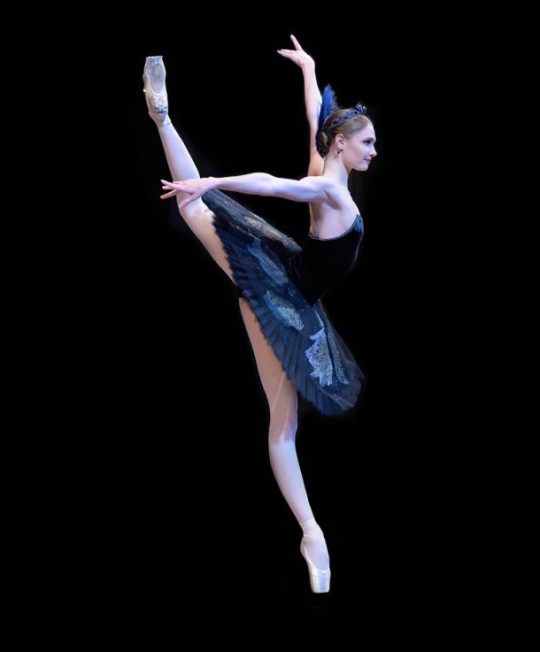
Alena Kovaleva as Odile, “Swan Lake", libretto by Yury Grigorovich, Vladimir Begichev and Vasily Geltser, choreography by Yury Grigorovich (2001), Marius Petipa, Lev Ivanov and Aleksandr Gorsky, music by Pyotr Tchaikovsky, Bolshoi Ballet, Moscow, Russia (September 25, 2019)
Photographer Natalia Voronova
65 notes
·
View notes
Video
youtube
30/12/18 Svetlana Zakharova Monologue, basket and death of Nikia
💞 超愛這齣異國芭蕾舞劇的舞者的印度服飾 ✨ 明庫斯:「神殿舞姬」Minkus : La Bayadère 🩰 #LaBayadère: a heart wrenching and unforgettable moment of grace and poetry 一個令人心碎且難忘的優雅和詩歌時刻... 故事發生在傳奇而神秘的印度,講述了一個關於愛、死亡和復仇審判的故事。 Marius Petipa’s exotic ballet, set in legendary and mysterious India, is a story of love, death and vengeful judgement. Yuri Grigorovich’s sumptuous recreation of Petipa’s choreography, with breathtaking sets and costumes designed by Nikolay Sharonov, stars Svetlana Zakharova as the Bayadère Nikiya, Vladislav Lantratov as Solor and Maria Alexandrova as Gamzatti whose alluring presence challenges Solor’s love for Nikiya. The Bolchoi Theatre Orchestra is conduced by Pavel Sorokin.
youtube
9 notes
·
View notes
Photo
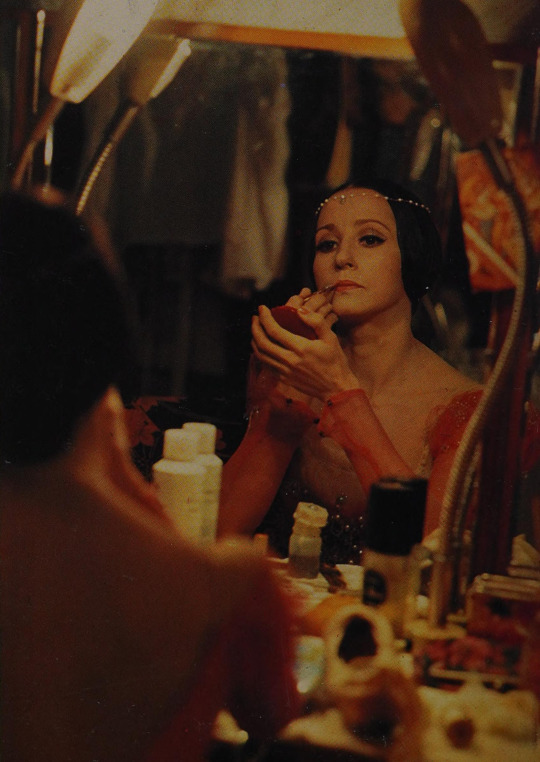
natalia bessmertnova photographed backstage preparing to perform as juliet in yuri grigorovich’s romeo and juliet by nikolai nikolaevich rakhmanov and a. a. makarov
67 notes
·
View notes
Text
0 notes
Text
Khachaturian Adagio of Spartacus and Phrygia (piano arr.) Cyprien Katsaris, with sheet music
Khachaturian Adagio of Spartacus and Phrygia (piano arr.) Cyprien Katsaris, piano with sheet music
https://vimeo.com/495039965

Sheet Music download here.
Spartacus ballet by Khachaturian
Spartacus, ballet in three acts by Armenian composer Aram Khachaturian, known for its lively rhythms and strong energy. Spartacus was premiered by the Kirov Ballet in Leningrad (now St. Petersburg) in 1956, and its revised form was debuted in 1968 by the Bolshoi Ballet in Moscow.
Khachaturian later adapted what would become his most famous ballet as a group of suites for orchestra, and, although the ballet remained a part of the Bolshoi’s repertoire, the suites provide the more familiar version.
The program of Khachaturian’s ballet (libretto by Yuri Grigorovich) was derived from a book by Raffaello Giovagnolli that details events in a 1st-century-bce Roman slave revolt; its leader, Spartacus, was a Thracian warrior captured in battle. The rebellion’s high point—literally and figuratively—was its seizure of Mount Vesuvius as a stronghold.
After two years of unrest, the rebellion was finally put down by Marcus Licinius Crassus, and Spartacus fell in battle. The surviving rebels, numbering some 6,000, were crucified along the Appian Way.
Khachaturian’s original composition was based on a narrative sketch that had been prepared earlier for the Bolshoi. It was not a great success, perhaps as much because of the choreography and the story as the music.
The 1968 version, with its contrasting moods of vibrant energy and gentle lyricism, was such a hit in Moscow that the Bolshoi took it on the road to Covent Garden the following year. By that time, the composer had already arranged orchestral suites from the ballet music so that Spartacus could reach the broadest possible audience.
Although Soviet authorities approved of the ballet, apparently seeing it as an allegory of the Russian people throwing off their tsarist oppressors, it seems quite possible to interpret its message as referring to Russians under communism rebelling against their own oppressive Soviet leaders.
Khachaturian, after all, had spent much of his life under the watchful eye of Joseph Stalin, and he had seen friends and colleagues disappear into the night.
SPARTACUS
SYNOPSIS
Spartacus is the dramatic story of the leader of a band of slaves uprising against cruel Roman rule.
ACT I
The military machine of imperial Rome, led by the Roman consul, Crassus, wages a cruel campaign of conquest, destroying everything in its path. Among the chained prisoners doomed to slavery are Thracian king, Spartacus and his wife, Phrygia. Spartacus is in despair. Born a free man, he is now a slave in chains.
At the slave market, the men and women prisoners are separated for sale to rich Romans and Spartacus is parted from a grief-stricken Phrygia, who is destined to join Crassus’ harem.
At Crassus’ palace, mimes and courtesans entertain the guests, making fun of new slave, Phrygia. Drunk with wine and passion, Crassus demands a spectacle. Two gladiators are forced to fight to the death in helmets with closed visors. When the victor’s helmet is removed, it is Spartacus, and he has killed his friend, Hermes.
In despair, Spartacus decides he will no longer tolerate captivity and incites the gladiators to revolt.

ACT II
Having broken out of their captivity, Spartacus’ followers call the local shepherds to join the uprising. Spartacus is proclaimed their leader, however he is haunted by the thought of Phrygia’s fate as a slave and he is drawn back to Crassus’ villa to find her.
Crassus is at his villa, celebrating his victories, however the festivities are cut short when Spartacus and his men break into the villa. Spartacus engages Crassus in combat and is at the point of killing him when, with a gesture of contempt, Spartacus lets Crassus go.
ACT III
Crassus is tormented by his disgrace. Fanning his hurt pride, his concubine, Aegina calls on him to take revenge.
Spartacus and Phrygia are happy to be together. But suddenly his military commanders bring the news that Crassus is on the move with a large army. Spartacus decides to go into battle but, overcome by cowardice, some of his warriors desert their leader. Spartacus’ forces are surrounded by the Roman legions. Spartacus’s devoted friends perish in unequal combat. Spartacus fights on fearlessly but, closing in on the wounded hero, the Roman soldiers crucify him on their spears. Phrygia retrieves Spartacus’ body from the battle field. She mourns her beloved and appeals to the heavens that the memory of Spartacus lives forever.
Read the full article
#noten#sheetmusicdownload#sheetmusicscoredownloadpartiturapartitionspartiti楽譜#sheetmusicscoredownloadpartiturapartitionspartiti楽譜망할���악нотыnoten
0 notes
Photo
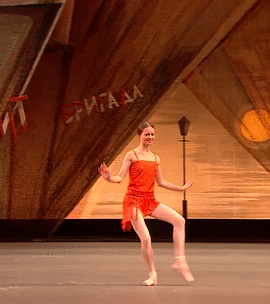
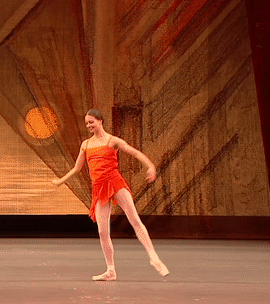
Nina Kaptsova in The Golden Age.
#nina kaptsova#the golden age#bolshoi ballet#bolshoi gif#prima ballerina#yuri grigorovich#ballet#russian ballet#moscow#russia#dance#ballerina#gif#my gif#ballet gif
60 notes
·
View notes
Text
a legend of love is such an underrated, special ballet. i know at least four incredible ballerinas who have said mekhmene banu is their favourite role, despite the fact that they rarely have favourites/tend not to disclose their preferences.
7 notes
·
View notes
Photo
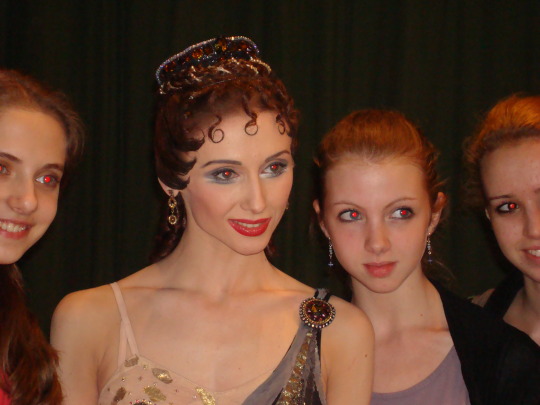
Meeting Svetlana Zakharova backstage, at the end of Bolshoi’s Spartacus, in 2010
43 notes
·
View notes
Photo
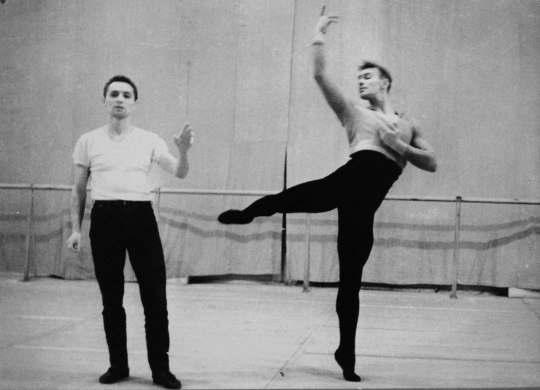
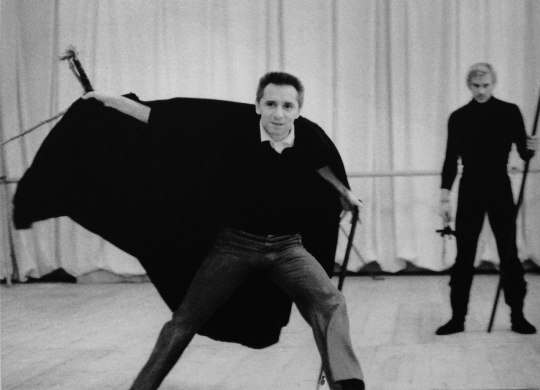
Yuri Grigorovich in rehearsal with Vladimir Vasiliev.
25 notes
·
View notes
Note
Ale, could you explain better the IBC Moscow? The categories etc. I have no idea how it works. So like, there are categories and a winner to each category? People have to be called to participate or they have to sign in for it?... sorry I have no clue. But please, if you could be updating the news on the IBC, like you did for the Olympics, that would be super cool!
Sure! Happy to answer and I'll try to keep you all updated. The roster of dancers participating is super fascinating. Here's some more general information about the competiiton:
Structure:
There are two age categories:
Junoir: 14-18, still in ballet school, not working professionals
Senior (19-27) recent graduates, or working professionals
Inside each age division, there are Solo and Duet categories. Dancers can choose either or both categories but doing both solo and duet is very uncommon. Dancers in a duet are judged individually, and contestants performing in duets can perform with a non-competing partner as well. Mixed-age duets are also allowed.
Participation is granted by a pre-selection screening. Dancers have to submit a biography, proof of education, and various dance videos and photos, etc to be considered. Juniors have to be sent with the permission of their school, and professional dancers are supposed to discuss their participation and get their theater director's approval. Directors often don't like pros doing competitions because there is a higher chance of injury and it can make casting complicated.
However, if a dancer is a Laureate or Prize Winner of an International Federation of Ballet Competition, then they can skip the pre-selection process and be directly accepted as a competitor, provided juniors have permission from their school.
Competition Program:
There are three rounds for each category in each age division. Cuts are made after the conclusion of each round. They can cut one duet partner and keep the other. The eliminated partner will continue to perform "out-of-competition." Round III is referred to as the finals. The composition generally looks something like this.
Soloists:
Round 1:
Classical Variation chosen by the dancer (19th or 20th century)
Classical Variation from the competition's repertoire list
Round 2:
A different Classical Variation chosen by the dancer (19th or 20th century)
A piece of Modern choreography. It can be made specifically for the competition or a piece from a work created after 2010
Round 3:
A different Classical Variation chosen by the dancer (19th or 20th century)
A second variation, 'prefered' to be a variation choreographed by Yuri Grigorovich
Duets:
Round 1:
Classical PDD from the competitions repertoire list
Round 2:
Classical PDD chosen by the dancers (19th or 20th century)
A Modern duet. It can be made specifically for the competition or a piece from a work created after 2000
Round 3
A different Classical PDD chosen by the dancers (19th or 20th century)
A duet from one of Yuri Grigorovich's ballets
The big rule: Each performance can only be shown once. You can't repeat anything, you have to dance new pieces every round. For example, you can't take your solo from round 1's repertoire list and repeat it in the finals.
Prizes and History:
Moscow IBC is one of the most famous and most prestigious competitions and so many stars had breakout moments here. It's traditionally held every 4 years. You're competing for medals, diplomas, prize money but most importantly, exposure. Participating in a competition like this is one of the best ways to get seen and get a job, even if you don't win a medal.
Previous Prize Winners include Mikhail Baryshnikov, Eva Evdokimova, Nina Ananiashvili, Julio Bocca, Vladimir Malakhov, Maria Alexandrova, Nikolai Tsiskaridze, Natalia Osipova, and Ivan Vasiliev.
Technically, there are 1st-3rd prizes available for male soloists, female soloists, male duet dancers, and female duet dancers (remember they're judged separately) in Senior and Junior categories. For example, in the most recent 2017 edition of the competition, Ellison's Elizabeth Beyer won 1st place in the girls' Junior soloist category while Berlin Staattsballet's Evelina Godunova won 1st place in the women's soloist Senior category. All medalists receive the title of "Laureate". Additionally, after the 3 medals, diplomas of merit can also be awarded based on the judges' discretion. There are usually 1-3 awarded per category and they come with a small amount of prize money and the title of "Diploma Holder." There are also a wide variety of other special prizes and awards that can be given out.
However, things can get messy because there are often ties and prize money gets split. Continuing to use 2017 as an example, BBA's Elizaveta Kokoreva & Sunhwa's Seonmee Park both were awarded 1st prize in the Junoir Duet Category and shared the prize money. Kokoreva can compete again this year because she'll be in the Senior category.
Sometimes certain prizes aren't awarded if the Jury feels like the dancers aren't up to snuff. For instance, BBA's Denis Zakharov won 1st place in boys Junoir solo but Ballettschule Berlin's Victor Caxieta was only awarded 3rd place and there were no other prizes or diplomas given for that category.
There are often 120-150 dancers competing from all over the world. This year, the talent pool appears smaller, likely due to the Russian invasion. It will be interesting to see if this results in more prizes being awarded or less.
There's also a Grand Prix Award (like an overall winner of all the categories), but this has only been awarded 4 times in history: Nadezhda Pavlova, Irek Mukhamedov, Andrey Batalov, and Denis Matvienko who won most recently in 2005. Even Baryshnikov was not deemed worthy, he received 'only' first place.
There is also a Choreographer's Competition happening concurrently. I can talk about this more separately if people are interested.
Jury:
All of the prizes are decided by a panel of esteemed ballet and dance greats. Jury members have included a lot of past greats but this year's jury will be headed by the legendary Yuri Grigorovich again. The competition is being held with special attention towards his 95th anniversary!
Other members include Svetlana Zakharova, Nikolai Tsiskaridze (rector of VBA), Marina Lenova (rector of BBA), Yuri Fateyev (Ballet Director of MT), Boris Eifman (Director of Eifman Ballet), Valentin Yelizariev (Director of Bolshoi Belarus), Margherita Parrilla (Director of the Accademia Nazionale di Danza) and interestingly enough, Vadim Pisarev (Artistic director of the Donbass Opera (the Donetsk National Academic Opera and Ballet Theatre named after A. Solovyanenko))
13 notes
·
View notes
Photo
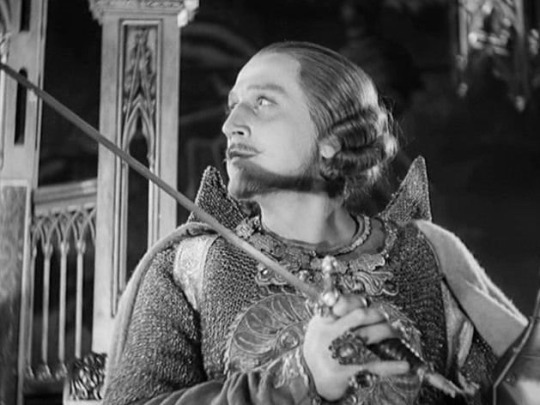
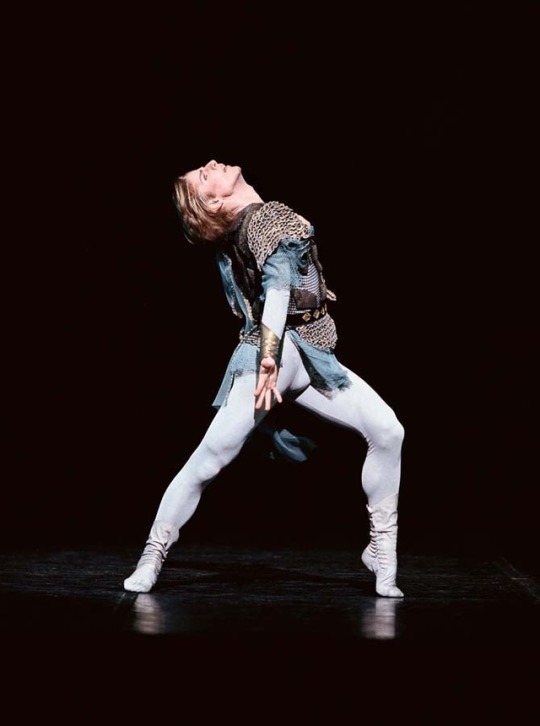
These pictures have literally the same energy.
Andrei Kurbski by Mikhail Nazvanov in the film “Ivan the Terrible”
and
Andrei Kurbski by Karl Paquette in the ballet “Ivan the Terrible”
By the way, the music was written for the film first and then was rearranged to create the ballet :з
#ivan the terrible#sergei prokofiev#andrei kurbski#sergei eisenstein#mikhail nazvanov#karl paquette#pob#yuri grigorovich
10 notes
·
View notes
Text
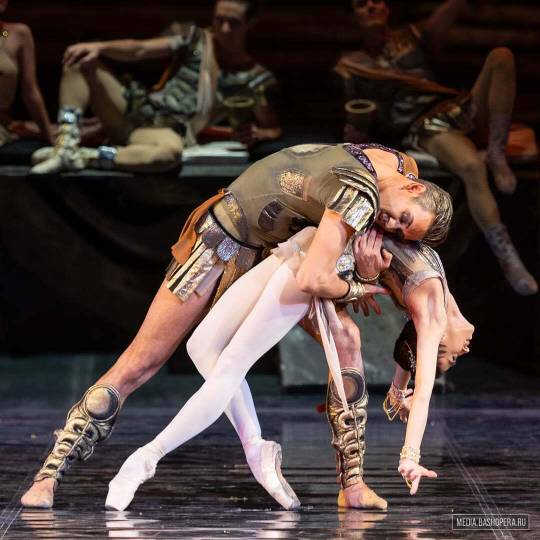
Sofya Saitova as Aegina and Oleg Shaybakov as Crassus, "Spartacus", libretto and choreography by Yury Grigorovich, based on the novel of the same name by Raffaello Giovagnolli and plots of ancient history using the script by Nikolay Volkov, music by Aram Khachaturian, scenography and costume by Simon Virsaladze, Bashkir State Opera and Ballet Theater, Ufa, Republic of Bashkortostan (October 8, 2023)
Photographer Oleg Menkov
12 notes
·
View notes
Photo
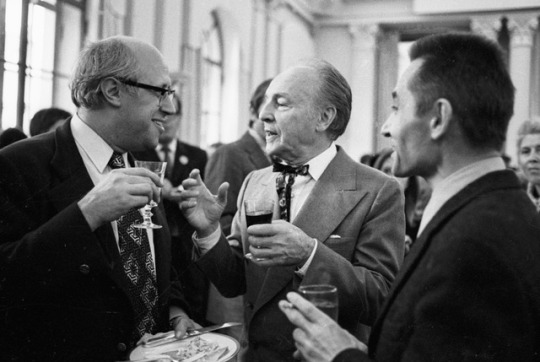
Mstislav Rostropovich, George Balanchine and Yuri Grigorovich at the reception of the U.S. New York City Ballet troupe tour in Moscow on November 1, 1972.
77 notes
·
View notes
